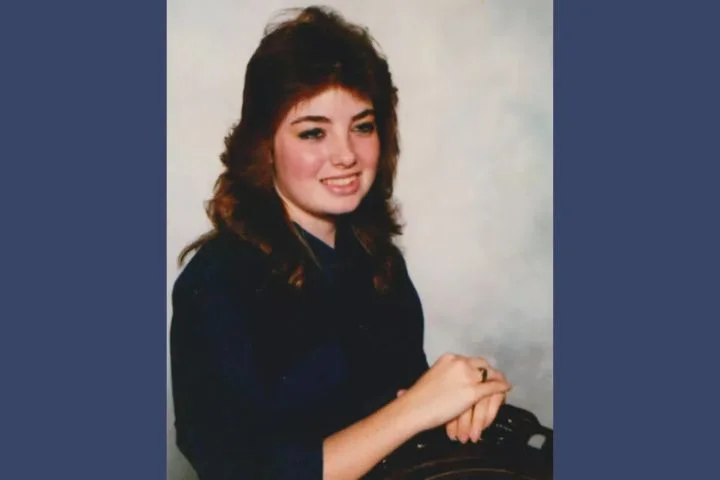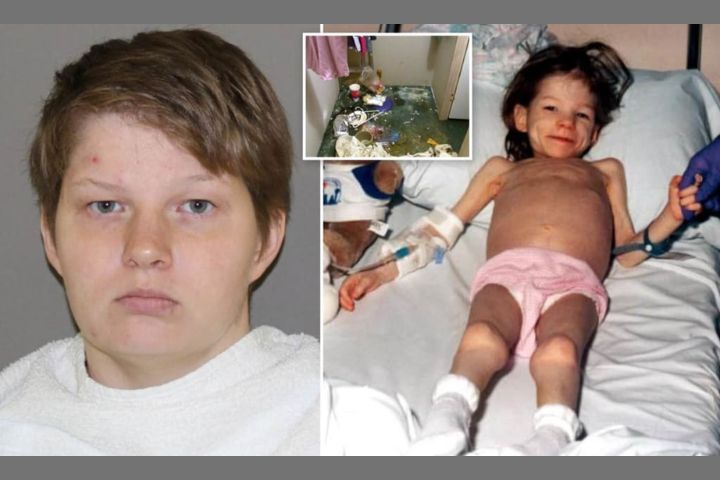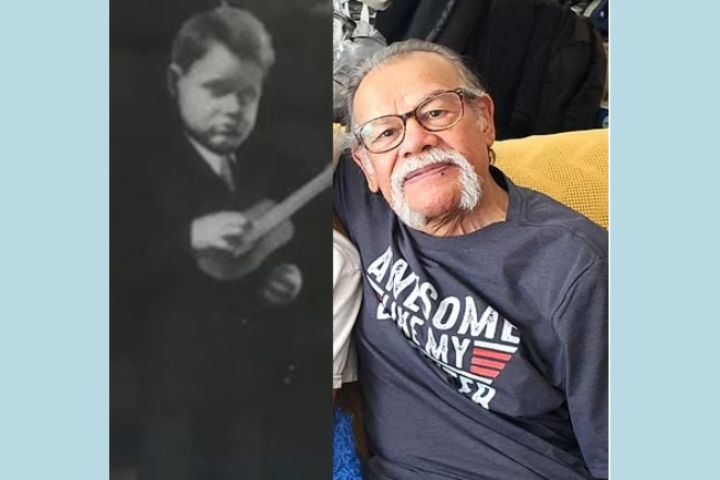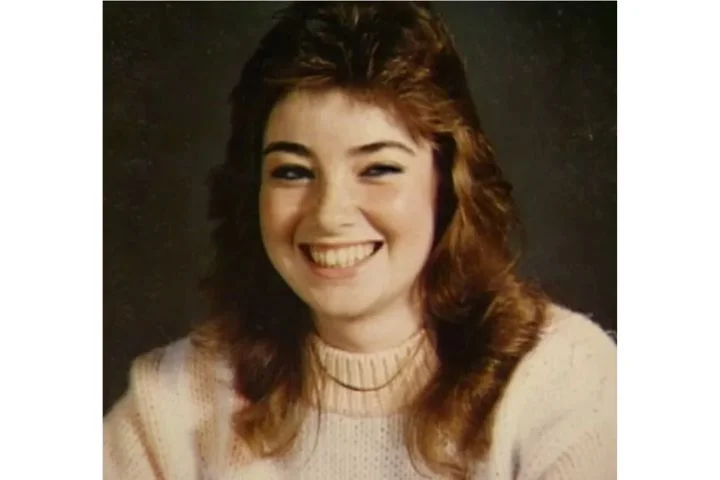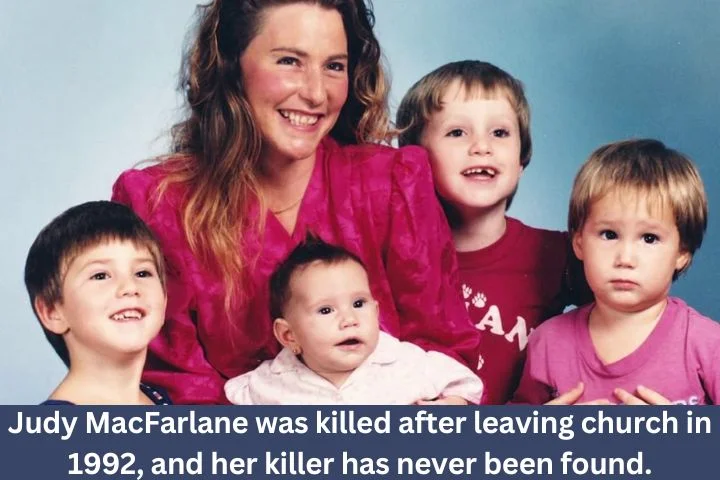Tracey Kirkpatrick was working a closing shift at a ladies’ sportswear shop in Frederick, Maryland on the evening of Wednesday, March 15, 1989. The 17-year-old, who was a senior at Brunswick High School, was scheduled to close the store by herself that night. Her mother, Diane, stopped by around 7:00 pm and brought her daughter dinner from McDonald’s; the store was quiet at that time and Tracey was reading a book. About an hour later, the store manager made a brief visit to see how Tracey was doing; Tracey assured her that everything was fine.
The shop, like most of the stores in the Westridge Shopping Center, closed at 9:00 pm. Around 9:15 pm, security guard Don Barnes walked past the shop while making his routine patrol around the shopping center. Don, a deputy with the Frederick County Sheriff’s Office who worked part-time as a security guard to make some extra money, noticed that the lights were still on inside the store when he walked past; he didn’t notice anything unusual when he glanced inside and assumed the employees were in the back finishing their work for the night.
Don made a second patrol of the shopping center around 10:40 pm. By this time, most of the stores were dark and quiet, but when Don walked past the sportswear store he saw that the inside lights were still on. Finding that odd, he checked the front door of the shop and found it was unlocked so he walked inside.
Don didn’t get a response when he called out to check if there were any employees inside the store; unsure if he was walking in on a robbery, he cautiously made his way to the back of the shop. When he pushed open the door to the back storeroom, he was horrified to see Tracey lying in a pool of blood. Realizing that she was d*ead, he immediately backed out of the shop and summoned police.
Not long after police arrived at the scene, Tracey’s parents drove into the parking lot. They had grown concerned when Tracey hadn’t been home at her normal time and had thought that she might have had a flat tire or some other kind of car trouble. When they saw all the flashing lights in front of the sportswear store, they immediately panicked and raced for the door. Officers blocked them from entering the store, and Tracey’s mother frantically pleaded for them to tell her that her daughter was okay. When they learned that Tracey had been ki*lled, Diane collapsed and had to be taken to a nearby hospital to be treated for shock.
Tracey’s parents weren’t the only ones who were shocked by her mur*der. The Westridge Shopping Center, located on U.S. 40 to the west of downtown Frederick, was not a place where violent crime was common. Although some of the gas stations along the highway had been robbed before, the idea that someone could have been ki*lled in one of the upscale shops seemed incomprehensible.
Investigators struggled to make sense out of the crime scene. It didn’t appear that robbery had been the motive; the money inside the cash register hadn’t been touched, although Tracey’s purse, along with her car keys and store keys, was missing. Tracey had been stabbed multiple times, but she was fully clothed and had not been sexually assaulted.
Nothing in the store appeared to be out of place; merchandise was still neatly folded on the shelves and nothing had been knocked to the floor. There were no signs of forced entry, but detectives weren’t sure when the ki*ller had entered the store; it was possible that they had come through the front door while the store was still open and then waited for a chance to attack.
While the ki*ller had likely entered through the front door, investigators determined that they had probably exited from the store’s rear entrance. There was a blood smear on the rear door, along with a partial fingerprint. Several droplets of blood were found in a rear hallway that led to the store’s loading dock and dumpster; it’s possible that the kil*ler was able to escape from the loading dock. Investigators were hopeful that the ki*ller might have discarded the mur*der weapon as he ran off and searched the area thoroughly, but the weapon was never recovered.
Detectives found a man sitting in his car in the shopping center parking lot waiting for his wife to finish her shift at one of the stores there; the man was interviewed but was unable to provide any useful information. He hadn’t seen or heard anything unusual while he was waiting. The few employees that were still present at the shopping center at that time were also interviewed, but none of them had noticed anything out of the ordinary that night.
After conducting an autopsy, the Frederick County Medical Examiner determined that Tracey had been stabbed a total of seven times in her back and chest. She had some defensive wounds on one of her hands, indicating that she had tried unsuccessfully to fight off her ki*ller. The medical examiner noted that it appeared to be an intensely personal crime, telling police that it looked as if someone had been extremely angry with Tracey. He confirmed that it had not been a sexual attack, but it had been very violent and the ki*ller would have been covered in Tracey’s blood when it was all over.
The idea that Tracey had been singled out for mur*der seemed preposterous to everyone who knew her. Tracey was the kind of teenager who never caused any trouble for anyone. She was an excellent student who earned mostly As at school and worked two part-time jobs to save up money for college. She hoped to major in accounting at Mount St. Mary’s University and had talked about later going to law school.
Tracey could be quiet and shy around people she didn’t know well, but those who were lucky enough to get close to her realized that she had a great sense of humor and was a loyal friend. She liked to write poetry in her spare time — one of her poems was published in the New American Poetry Anthology the year before she died — and she loved to read.
Tracey was known for being somewhat conservative — some of her co-workers described her as being a little old-fashioned — and she was extremely responsible. Using money that she saved from working, she bought herself a 1979 Grand Prix and hung a cardboard cut-out of a teddy bear from the rearview window.
Investigators interviewed Tracey’s friends and classmates and couldn’t find anyone who had a bad thing to say about her. She didn’t have any enemies that anyone was aware of, and she had never mentioned being frightened by anyone.
In addition to working at the sportswear store, Tracey also had a part-time job at Barrett’s Shoe Store, which was also located in the Westridge Shopping Center. Immediately after Tracey was kil*led, Barrett’s changed their policy so that no employee would ever be scheduled to close the store alone. It’s unclear if the sportswear store did the same.
A few weeks after the mu*rder, the investigation seemed to be stalling. No witnesses had come forward to report seeing or hearing anything unusual on the night that Tracey was ki*lled, and detectives admitted that the lack of witnesses was hindering their investigation. They had no suspects and still had no idea what the motive for the murd*er had been.
As the investigation reached the one-month mark, officials announced that there was a $5,000 reward being offered for information leading to the arrest and conviction of Tracey’s k*iller. Most of the money had been donated by Frederick-area business owners who had been shocked by the brutality of the crime. An additional $1,000 was being offered by Crime Solvers. Although several tips were called in to police after the reward was announced, all of them led to d*ead ends.
The case soon faded from the headlines, but was thrust back into the spotlight after a man called a Las Vegas-based “confession hotline” — a 900 number where people paid by the minute to confess their deepest secrets so that other people could call in and listen to them — and claimed that he had k*illed Tracey. An attorney for the hotline had forwarded the recording to the Las Vegas Police Department; after listening to it, they sent it to authorities in Maryland.
The recording, which lasted for just over a minute, had been called in from a payphone located at a Safeway grocery store outside of Frederick, Maryland. The male caller claimed that his name was Don and “three months ago I stabbed a girl to de*ath.” He said he wasn’t worried about being identified because “there are lots of guys named Don in Frederick.”
The man went on to say that the girl he had ki*lled had worked in a ladies’ sportswear store and he “often came by and talked to her when she was working alone.” On the night of the mur*der, they had gotten into an argument and he had pulled out a knife and ki*lled her.
The caller noted that he knew he should turn himself in to the police, but “whatever they do to me, that won’t bring Tracey back.” He decided against confessing to authorities because “we have the de*ath penalty in Maryland.” He ended by saying that he was sorry for what he did, but there was nothing he could do to take it back.
Investigators who listened to the tape believed it was possible that the male caller was the actual k*iller. Hoping to open a dialogue with him, Cpl. Barry Horner, the lead investigator on the case, wrote the man a letter and had it published in a local newspaper. He assured the man that if he confessed to the crime, Frederick County State’s Attorney Lawrence Dorsey was willing to take the d*eath penalty off the table.
Cpl. Horner wrote that “I have learned through my investigation much of what happened on March 15, but only you know all of what happened that night.” He urged the man to call him, stating that “I know from the telephone call you made to Las Vegas in June that the events of that night still haunt you and probably will until you share them with me.” He ended by saying he hoped the man would do the right thing and confess so that Tracey’s family would finally gain some measure of closure.
The mysterious caller was apparently unmoved by Cpl. Horner’s letter, as he didn’t attempt to contact law enforcement or make any other calls to the confession hotline. Investigators still believed the call was a viable lead, however, so they decided to release it to the public on the one-year anniversary of the mu*rder.
Four Frederick-area radio stations were given copies of the confession tape and asked to play them on March 15, 1990. Detectives were hopeful that someone in the area would recognize the caller’s voice; they asked for anyone who thought they could identify the man to reach out to investigators.
Two hours after the call was aired, a listener contacted police and told them they were certain they knew who the man was. The name they provided to police was someone they had already considered a potential person of interest, though they had never been deemed a strong suspect. Detectives attempted to interview the man, but he declined to cooperate.
At 1:00 am on March 16, 1990, deputies returned to the man’s home armed with a search warrant. In addition to seizing several items from the man’s house, they also obtained a hair sample from the man. They refused to release the man’s name to the public, noting that he had not yet been charged with any crime. Officials also reminded reporters that even if the man had made the phone call to the confession hotline, it didn’t necessarily mean he was the ki*ller. They needed physical evidence to back up his claim.
After the evidence obtained during the search had been analyzed by the crime lab, officials announced that they had been unable to link the man to Tracey’s mur*der. The man remained on their radar for a while, but detectives eventually determined that the call had been a hoax and the man had no involvement in the crime.
Tracey’s case was featured on “Unsolved Mysteries” in 1991. The episode would be shown several times over the next few years, and each time it aired investigators would receive a few new leads. Unfortunately, none of them brought them any closer to finding Tracey’s ki*ller.
At a 1994 news conference, Tracey’s parents admitted that they were still having a hard time dealing with her loss. They still hoped that the ki*ller would be caught, but were frustrated by the fact that the case seemed to have gone cold. Diane said she felt as if an evil spirit had swooped down, ki*lled her daughter, and then vanished.
Tracey’s parents mentioned to reporters that the night Tracey was ki*lled had been the first night she had ever been scheduled to close the store alone. This seemed to back up the investigator’s conclusion that the confession call had been a hoax, as the caller had claimed he often came in to talk to Tracey when she was working alone at night.
The pain that William and Diane felt over losing their daughter was readily apparent. William noted that he had quit his job as a long-haul trucker because it gave him too much time to think about what had happened to Tracey. Diane had also quit her retail management job, finding it too stressful after Tracey died. They admitted that they still thought about Tracey daily and wondered what she would be doing with her life if it hadn’t been stolen from her five years earlier.
Little progress was made on the case over the next couple of decades. In 2009, detectives stated that they were still working on the case but hadn’t had any new leads in years. To mark the 20th anniversary of the mur*der, Tracey’s family and law enforcement held a vigil at the Westridge Shopping Center.
Over the years, police have considered several persons of interest; they currently have two different suspects that they feel strongly about but lack the physical evidence needed to link either of them to the crime scene. They have resubmitted some of the physical evidence for more advanced DNA testing, but to date have been unsuccessful in extracting a DNA profile for the suspect. They also want people to know that it’s never too late to call detectives with any information they might have about the case; even something that seems insignificant might be enough to finally solve Tracey’s mu*rder.
Tracey Kirkpatrick was just 17 years when she was mur*dered in 1989. She was a sweet, shy teenager who loved animals and was always trying to rescue strays. She had dreams of going to college and becoming a lawyer, but these dreams were stolen from her by an unidentified k*iller. Her family has been waiting over 30 years to obtain justice for Tracey; it is long overdue. If you have any information about Tracey’s mu*rder, please contact Sgt. Andrew Alcorn with the Frederick Police Department at 240–674–2612.
